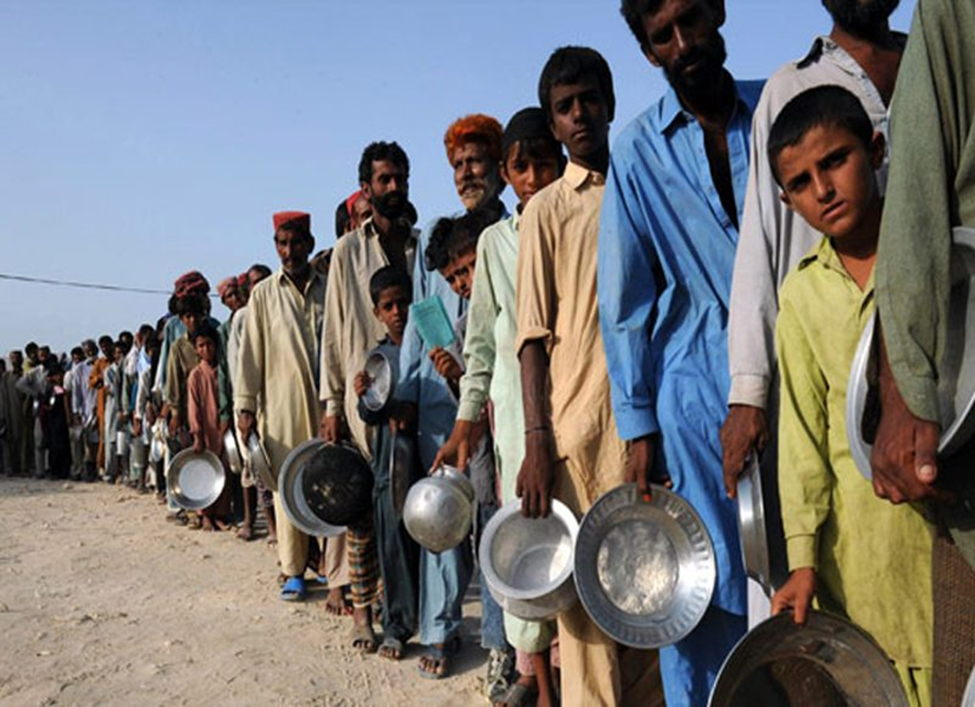
What You Didn't Know About Hunger in Urban Pakistan
Blog Posted On: September, 03, 2025

Hunger in Pakistan extends beyond rural and flood-affected regions, increasingly affecting urban places as well. The economic challenges, rising food costs, political turmoil, and climatic catastrophes have intensified the issue, placing significant pressure on the nation's healthcare system and clean water infrastructure, and it is far nearer than previously anticipated.
Urban Hunger in Pakistan: A Complex Challenge
- Urban food insecurity in Pakistan exceeds that of rural areas, with 40% of urban families experiencing food insecurity, in contrast to 34% in rural regions.
- Rapid urbanization does not provide improved food accessibility since urban impoverished individuals allocate up to 70% of their income on food expenditures.
- Food inflation is significantly impacting the urban impoverished since high inflation rates are driving millions under the poverty threshold.
- Urban children and adults have significant malnutrition, with 36.9% of Pakistan's population affected by food insecurity.
- Urban hunger often remains concealed since several city inhabitants must compromise the quality and quantity of their meals, resulting in "hidden hunger" characterized by nutritional deficiencies.
- Urban inhabitants depend mainly on food markets, rendering them vulnerable to supply chain interruptions, price escalations, and economic recessions.
- Government policies and economic disparity are primary catalysts of urban hunger, with policy inadequacies, economic inequality, and insufficient social safety nets as the main reasons.
- Pakistan has a dismal performance on global hunger indices, characterized by a "serious" degree of hunger, with forecasts suggesting it may not attain "low hunger" status by 2030.
- Urban hunger disproportionately affects women and children, particularly endangering the health of pregnant and nursing mothers, resulting in many children being born underweight.
- Urban regions discard hundreds of tons of food every day, with food recovery initiatives initiated by groups such as Saylani, Robin Hood Army, and Rizq.
- Urban hunger worsens criminal behaviour and instability, resulting in heightened street violence, increased school dropouts, and an increase in child labour.
- The government's safety nets often overlook the urban poor since social assistance programs are generally omitted from these frameworks.
- The primary factors contributing to urban food insecurity include poverty and financial instability, ineffective food distribution, accelerated urbanization, climate change and catastrophes, as well as population expansion.
Urban Hunger: Health Implications and Remedies
Health Consequences of Urban Hunger
- Urban hunger often causes micronutrient deficiencies, resulting in stunting, compromised immunity, and adverse health effects.
- Urban Pakistan has dual challenges of undernutrition and overnutrition, attributed to the prevalence of inexpensive, unhealthy processed meals and restricted access to fresh produce.
- Urban children, particularly in slum areas, are vulnerable to high rates of stunting and underweight conditions.
Contemporary Data and Trends
- Food insecurity in families is 40% more than in rural settings.
- Acute food insecurity affects 11 million individuals across both urban and rural regions from 2024 to 2025.
- The average number of undernourished families is 18.5%, resulting in ongoing health risks.
- Malnutrition among youngsters has reached 2.1 million over 10 months.
Societal and Economic Implications
- Chronic hunger and malnutrition diminish productivity, adversely impacting job performance and academic attainment.
- The increase in non-communicable diseases (NCDs) associated with inadequate diets places a burden on urban healthcare systems.
- Food scarcity and price increases cause social discontent.
Strategies and Policy Interventions
- The government has instituted subsidies for basic food products and nutrition programs.
- Community-based initiatives, online platforms, nutritional education campaigns, and complete nutrition policies are being executed.
Advancing Progress
- It is essential to enhance food distribution networks, strengthen local food production and urban agriculture, increase social protection and nutrition initiatives, and tackle poverty, inequality, and climate vulnerability.
Urban Hunger: Health Implications and Remedies
Saylani has numerous campaigns aimed at reducing hunger in Pakistan. Saylani is collaborating with the government and variousfood charity organizations to address hunger issues in rural and urban areas of Pakistan. Saylani has been involved in various awareness programs, including those focused on food waste issues and other awareness campaigns. There are vocational training programs that enable people to learn and earn money to afford their food. Saylani also offers the Dastar Khwan Program, a mobile food van, and ration distribution programs, among other initiatives for food charity. But with all this, Saylani needs your helping hand. Help Saylani to complete their mission to reduce hunger across Pakistan and donate to feed the hungry . Do your food donation to Saylani welfare and help us reduce hunger issues in Pakistan.
Read More blogs
